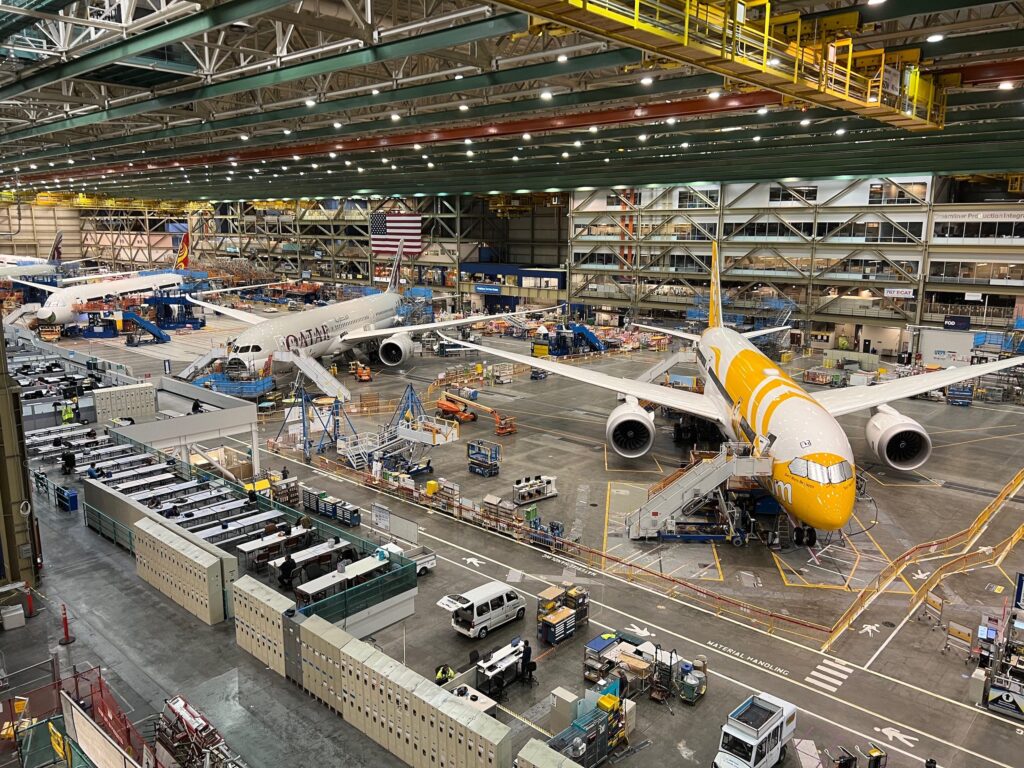- A whistleblower has come forward with allegations about the safety of at least 1,400 Boeing planes.
- He said production shortcuts have led to misaligned fuselages on Boeing 777 and Boeing 787 jets.
- Boeing said the complaint does not represent the "quality and long-term safety" of its planes.
Another Boeing whistleblower has come forward with concerns over one of the planemaker's family of passenger jetliners, pointing to safety concerns in at least 1,400 widebody airplanes.
In a January complaint to aviation regulators that was publicly released for the first time on Tuesday, Sam Salehpour, who claims to be a veteran Boeing employee and 40-year aerospace engineer, said parts of the Boeing 787 Dreamliner and the Boeing 777 were misaligned during assembly and could pose safety threats.
The New York Times first reported his allegations on Tuesday.
Through lawyers, Salehpour said he observed problems during his work on both programs and documented his concerns in order to send them to the FAA and Boeing leadership.
He said employees were pressured to "overlook" the concerns in what he described as a "schedule over safety" culture, which he claimed affects more than 1,000 Dreamliners and at least 400 777s.
Regarding the 787, Salehpour said he observed "shortcuts employed by Boeing to reduce bottlenecks during the 787 assembly process," including placing "excessive stress on major airplane joints" and leaving drilling debris between certain key joints.
This could "significantly" reduce the lifespan of the plane due to metal fatigue and cause an accident, Salehpour said in a Tuesday call with journalists.
Salehpour also raised flags about the 777, saying in his complaint that a redesign of the jet's assembly process to speed up production used "unmeasured and unlimited" force to get the fuselage to fit together.
"I literally saw people jumping on the pieces of the airplane to get them to align," he told the media in a press conference on Tuesday. He noted his concerns about the 787 and 777 airplanes were backed by Boeing data but that his complaints were ignored.
The complaint is under investigation, the FAA told to BI.
Salehpour will also testify before a Senate subcommittee on April 17, the Times reported.
Boeing has backed its widebodies despite the whistleblower complaint, telling BI in an email statement on Tuesday that Salehpour's allegations are not representative of the work it has done to "ensure the quality and long-term safety of the aircraft."
"The issues raised have been subject to rigorous engineering examination under FAA oversight," Boeing said of the 787. "This analysis has validated that these issues do not present any safety concerns, and the aircraft will maintain its service life over several decades."
Boeing said the 787 can fly for more than 30 years before it needs heavy maintenance to extend its life and that it is fully confident in the safety of its in-production and in-service Dreamliners.
"Based on the previous fuselage testing up to 165,000 cycles and Boeing's extensive data gathering, testing, modeling, and analysis from 2020 to today — shared transparently with the FAA — Boeing currently expects these issues will not change or affect the expected lifespan of the 787 fuselages," Boeing said.
The 787 has long been plagued by manufacturing issues
The complaints come after years of production issues on the 787, which led to a 15-month halt in airplane deliveries due to a series of production flaws, including the gaps mentioned by Salehpour.
The Boeing 787 is the company's best-selling widebody jetliner and is favorable for its different variants that come in three sizes — small, medium, and large — all with varying ranges and capacities. It is one of Boeing's biggest cash cows.
The allegations will also likely not help Boeing escape heightened scrutiny about its quality control after a door plug on an Alaska Airlines 737 Max 9 fell off mid-flight.
"I'm not doing this not because I want Boeing to fail, but because I want it to succeed and prevent crashes from happening," Salehpour said. "The truth is Boeing can't keep on the way it is; it needs to do a little bit better."
